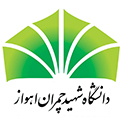
مؤلف: نجارزاده، رضا ؛
اقتصاد مقداری زمستان 1385، دوره سوم - شماره 4 ISC (1 صفحة - من 135 إلی 135 )
- استلام ملف الإرجاع :
-
(پژوهیار,
,
,
)
-
-

FailDailyLimitedMessage();
FailForSeeContentTypeRecharge();
FailForSeeMorePageRecharge();
